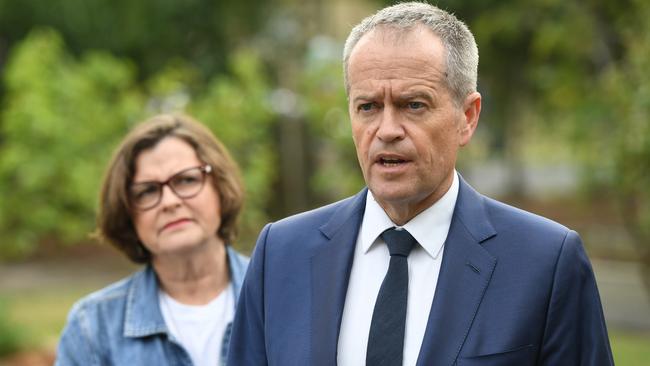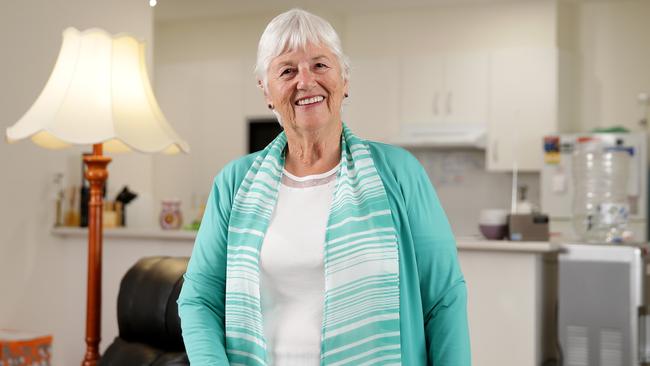Bill Shorten’s pensioner tax plan: Seat-by-seat breakdown of where affected voters live
ALMOST half the 84,000 NSW pensioners who stand to lose money from Bill Shorten’s decision to axe refunds for share tax credits live in tight marginal or Labor seats. SEE OUR SEAT-BY-SEAT MAP.
NSW
Don't miss out on the headlines from NSW. Followed categories will be added to My News.
ALMOST half the 84,000 NSW pensioners who stand to lose money from Bill Shorten’s decision to axe refunds for share tax credits live in tight marginal or Labor seats.
Nearly 8000 of them are in the marginal seats of Gilmore, Robertson and Page, and 40,000 live in ALP seats, posing a threat to Labor at the next federal election.
The issue is also set to be a decider in Saturday’s Batman by-election in Melbourne, with figures showing it is home to 1052 pensioners receiving tax refunds.
Exclusive government analysis of ATO data delving into where people who receive franking credit refunds live, shows the Opposition Leader’s decision to target retiree shareholders and super funds is electorally risky.
Tens of thousands of voters in marginal seats across the country will be financially worse off under Mr Shorten’s proposal, from Macquarie and Lindsay in Western Sydney to Chisholm, Corangamite and Dunkley in Victoria, where nearly 7000 voters who receive the cash refunds live, and Boothby and Hindmarsh in South Australia, with 2520 and 2189 voters respectively getting the refunds.
In Macquarie, 7500 will be impacted, losing an average $1321 a year. In Lindsay, 4683 people will lose around $1060 a year, while in Richmond 9999 people will no longer receive a cash refund on their investment incomes, losing an average $1731 a year.
In Eden Monaro, a bellwether marginal seat held by Labor, nearly 9000 will be hit, giving up an average of $1561 a year.

In total, 156,356 people who live in NSW Labor seats currently receive franking credits refunds and will be worse off financially as a result of Mr Shorten’s move.
The Labor leader yesterday ruled out giving pensioners any compensation or exemption.
“Let’s be very, very clear: less than 10 per cent of people who get a pension or a part pension are affected,” he said.
“The government is using pensioners to protect the wealthy.
“This is what this government always does. It will always protect the very wealthy at the expense of workers and middle-class families.”
Treasurer Scott Morrison said the policy was an “absolute train wreck”.
“Who did they think that this was going to hit? It’s a tax refund for people who have low rates of tax, which means they have low incomes.
“Pensioners have shares — that might be news to the people in the Labor Party — they have shares and they get the dividends and that’s the cash they live off,” he said.
“This has really turned to absolute custard within about 24 hours, the backswing has taken everybody out and the forward swing has taken out everyone in front of them.”
More than half of those who get a credit refund have a taxable income below the tax-free threshold of $18,200.

Government modelling also shows about 97 per cent of Australians who will be affected by the move have a taxable income of below $87,000.
Earlier this week, former Treasurer Peter Costello predicted millions of retirees and pensioners will be hit by Mr Shorten’s proposal.
Mr Costello, who as Treasurer introduced the system of cash refunds for investment dividends in 1999, said even a low-income earner with a small investment income would be “worse off”.
Campbelltown resident Shirley Bouffier believes she will lose $1700 a year under the Shorten plan.
The 81-year-old, who lives in a small unit in a retirement village, said it will be equivalent of losing a month’s worth of income she receives from the modest share portfolio her late husband built.
“We worked all our lives to get this, and now we’re living longer,” Ms Bouffier said.
“Somebody has pulled the rug out from under you. When we grew up, we knew when we got old we would be retiring with a certain amount of money but they keep moving the goalposts.”
Additional reporting: Chris Harris


